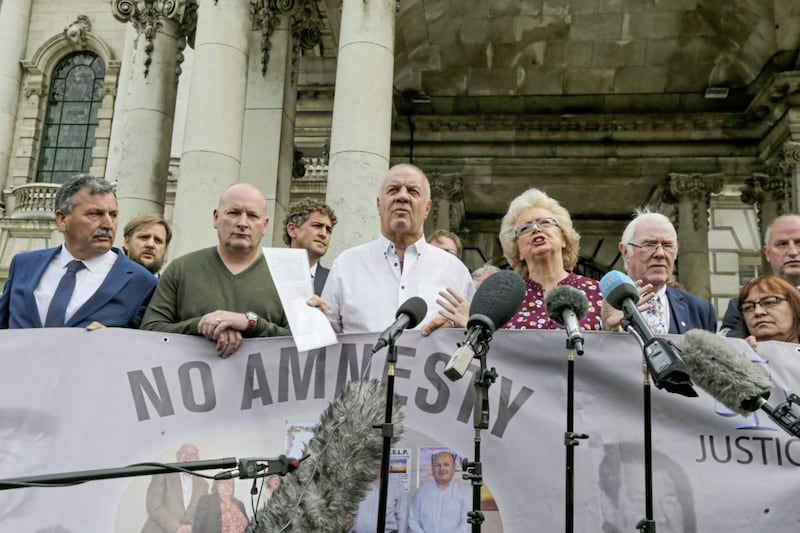THE BRITISH government is poised to break international law with its plan to halt prosecutions for Troubles offences, it was claimed last night.
A plan to introduce a statute of limitations for offences committed before the signing of the Good Friday Agreement is expected to be included in tomorrow's Queen's Speech.
It is designed to protect British army veterans, a number of whom have faced the courts in recent years for historical offences in Northern Ireland, though an exemption would apply to war crimes, such as torture, according to the reports.
However, the new law would also be expected to apply to paramilitaries and has therefore been widely characterised as an amnesty.
Taoiseach Micheál Martin has already warned the British government that any move to unilaterally bar prosecutions for Troubles-related crimes would be a "breach of trust".
The move would be a departure from legacy measures agreed in 2014's Stormont House Agreement.
More significantly, however, it could also breach international law.
The British and Irish governments, represented by the then secretary of state Theresa Villiers and foreign affairs minister Charlie Flanagan, signed an adjunct to the agreement, which has the status of an international treaty.
Article 9 of the agreement on establishing the independent commission on information retrieval made clear that no individual who provided information to the body would be immune from prosecution should the required evidential test be satisfied by other means.
The unilateral introduction of a statute of limitations would potentially breach the treaty though the British government is understood to think the adjunct does not oblige the two governments to pursue prosecutions.
Secretary of State Brandon Lewis last year admitted in Westminster that the British government planned to break international law with its UK Internal Markets Bill.
SDLP leader Colum Eastwood last night said the statute of limitations plan leaked to the Times and Daily Telegraph last week was "not just an abdication of moral responsibility to victims and survivors, but a clear breach of their treaty obligations following the Stormont House Agreement".
“This government is no stranger to tearing up its obligations under international law but the agreement to implement the Stormont House institutions and ensure that prosecutions continue where evidence is provided outside of the information recovery processes could not be clearer.," the Foyle MP told The Irish News.
"Reneging on that commitment would be an extraordinary act of bad faith and would send a clear message to victims, and to the international community, that Britain cannot be trusted to keep its word."
A British government spokesperson its objective was to deliver on its manifesto commitments to veterans who served in the north and deal with the past in a way that helps society "look forward rather than back".
"It is clear to all that the current system for dealing with the legacy of the Troubles is not working for anyone, failing to bring satisfactory outcomes for families, placing a heavy burden on the criminal justice system, and leaving society in Northern Ireland hamstrung by its past," the spokesperson said.








